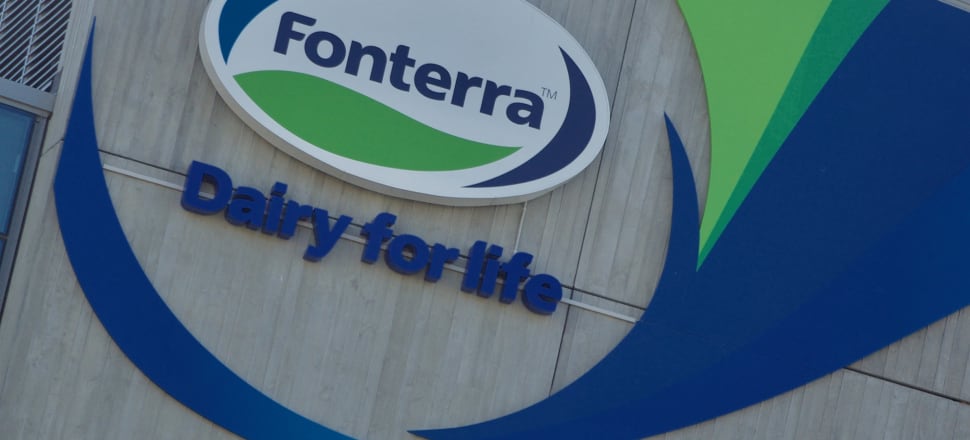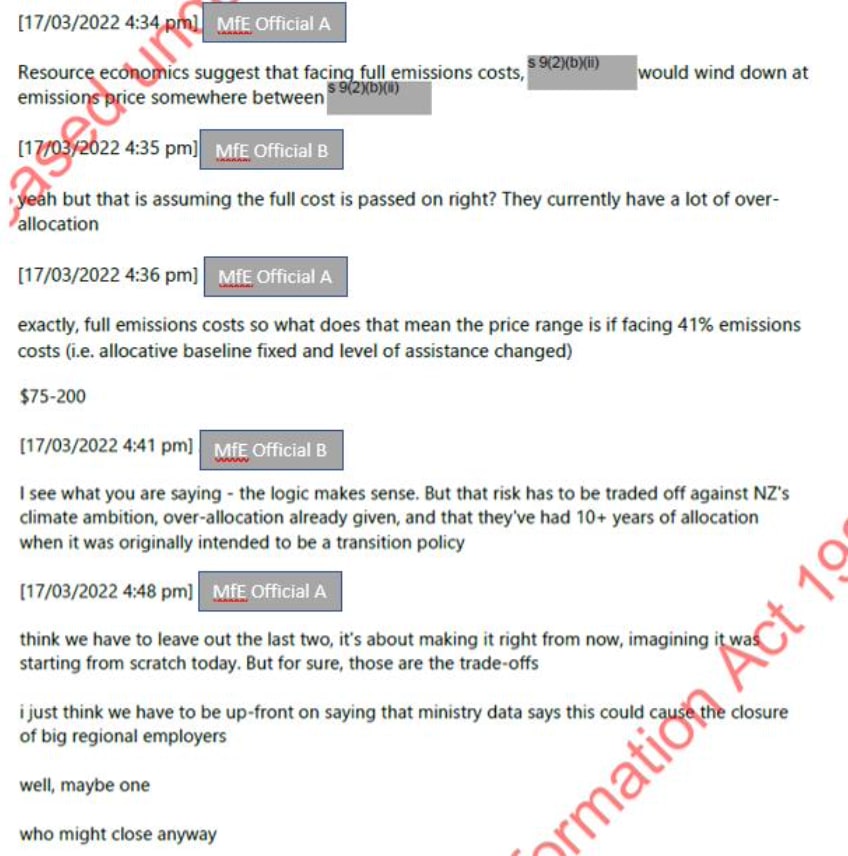
Official correspondence shows the Government decided to lower eligibility for carbon subsidies to keep specific businesses open, without considering the ramifications
Nearly 3000 people have signed a petition by environmental groups opposing a Government "u-turn" on subsidies for carbon polluters.
The reaction is surprising but gratifying to Emily Mabin Sutton of Climate Club, who said the Emissions Trading Scheme (ETS) is normally only the focus of industry insiders who can parse the dry and technical terminology.
"Most people really do care about having stronger climate policy and we all want a better Aotearoa. I was really, really happy and surprised," she said.
"My biggest concern is that the ETS had a rising price which was starting to drive companies that burn coal and gas to switch to renewable energy. But now it looks like the Government has done a u-turn on that."
At issue are changes to industrial allocation policy within the ETS, in a climate change bill currently before the Environment Select Committee.
When the scheme was first launched, it was one of the first of its kind. There were concerns that businesses facing a carbon price in New Zealand may shut when their international competitors could produce without the same price. The government of the day introduced free allocation of some carbon credits to reduce the burden but maintain the marginal incentive to decarbonise.
Since 2009, companies have successfully reduced emissions but the number of free credits hasn't changed. That means many companies are getting credits equivalent to more than 100 percent of their emissions, when they should only receive 57 or 87 percent (depending on how emissions-intensive they are).
Changes to address this over-allocation through setting new emissions baselines were introduced to Parliament late last year, after being consulted on in 2021. But alongside those was another change that hadn't been consulted on, and which had only been added after industrial submitters asked for it.
This extra change will see the eligibility thresholds for industrial allocation loosened. Some submitters argued (and the Ministry for the Environment agreed) that since the carbon price has nearly tripled since 2009, firms whose competitiveness wasn't affected under the old price were starting to hurt now.
The solution devised by the ministry is to make it easier to be eligible for industrial allocation by lowering the bar as the carbon price rises.
"Certainly the carbon price going up has had an impact on companies, but at the same time there's action in other countries as well. And [New Zealand companies] have had 14 years to start to shift their operations and adjust. You absolutely can't say that the carbon price changing is the only thing that we should take into account since 2009," carbon market expert Christina Hood told Newsroom.
"My concern is that the way they've proposed to rewrite these thresholds, it makes free allocation more and more available over time instead of phasing out. So it's just going in fundamentally the wrong direction."
There's also the potential for unintended consequences. The industrial allocation reforms were expected to save $60 million a year in carbon subsidies, but 25 percent of those savings could be lost if all 'moderately-intensive' companies are re-classed as 'highly-intensive' because of the eligibility changes. No one is able to say exactly how much it will cost if brand new activities become eligible either.
Hood received correspondence from the ministry and from Climate Change Minister James Shaw's office under the Official Information Act that shows how the policy was developed.
Officials were mostly concerned about the impact on a handful of companies if their over-allocation was curtailed. Given the high carbon prices, they could close.

There was only cursory assessment of the potential for moderately-intensive industries (which receive the 57 percent allocation) to move up into the 87 percent category if eligibility thresholds were loosened. Some of that assessment indicated this was a desirable effect, since otherwise those moderately-intensive industries might be threatened by the high carbon price.
What worried Hood most of all, however, was that officials undertook no analysis of the potential for new industries to become eligible for allocation.
"I think the biggest failure is not thinking about the consequence of new companies coming in and qualifying, or new activities coming in and qualifying. That's just a massive risk, both from an environmental and a fiscal perspective."
When industrial allocation was first developed, a handful of industries missed out on eligibility. They included meat-processing plants and Fonterra's coal-fired milk drying facilities. Fonterra alone emits more than a million tonnes of greenhouse gases a year through burning coal, according to Sutton. If it qualified even for the lower bracket of allocation, the Government would pay out more than $30 million in free credits each year.
"It does mean many millions more in Government subsidies just to Fonterra and more to other companies. It means more companies get qualified for industrial allocations - for free credits - and also [increases] the number of free credits that existing companies who participate in industrial allocation get," Sutton said.
The information released to Hood and provided to Newsroom also shows Shaw pushed back against the changes on at least two occasions, saying officials' explanations for the reasoning behind the eligibility changes didn't stack up. While he ultimately included the change in the bill, he said in his speech on the first reading of the legislation that the select committee should take a close look at the issue.
"There is one element of this that I would like the select committee to pay particular attention to, which is that the proposed settings may increase eligibility for industrial allocation, while, for the most part, industrial allocation will decline. I did take the official advice on this, but I am keen to hear what the select committee has to say about it," he said.
Shaw declined to comment for this article.
Submissions on the bill are open until Thursday.







